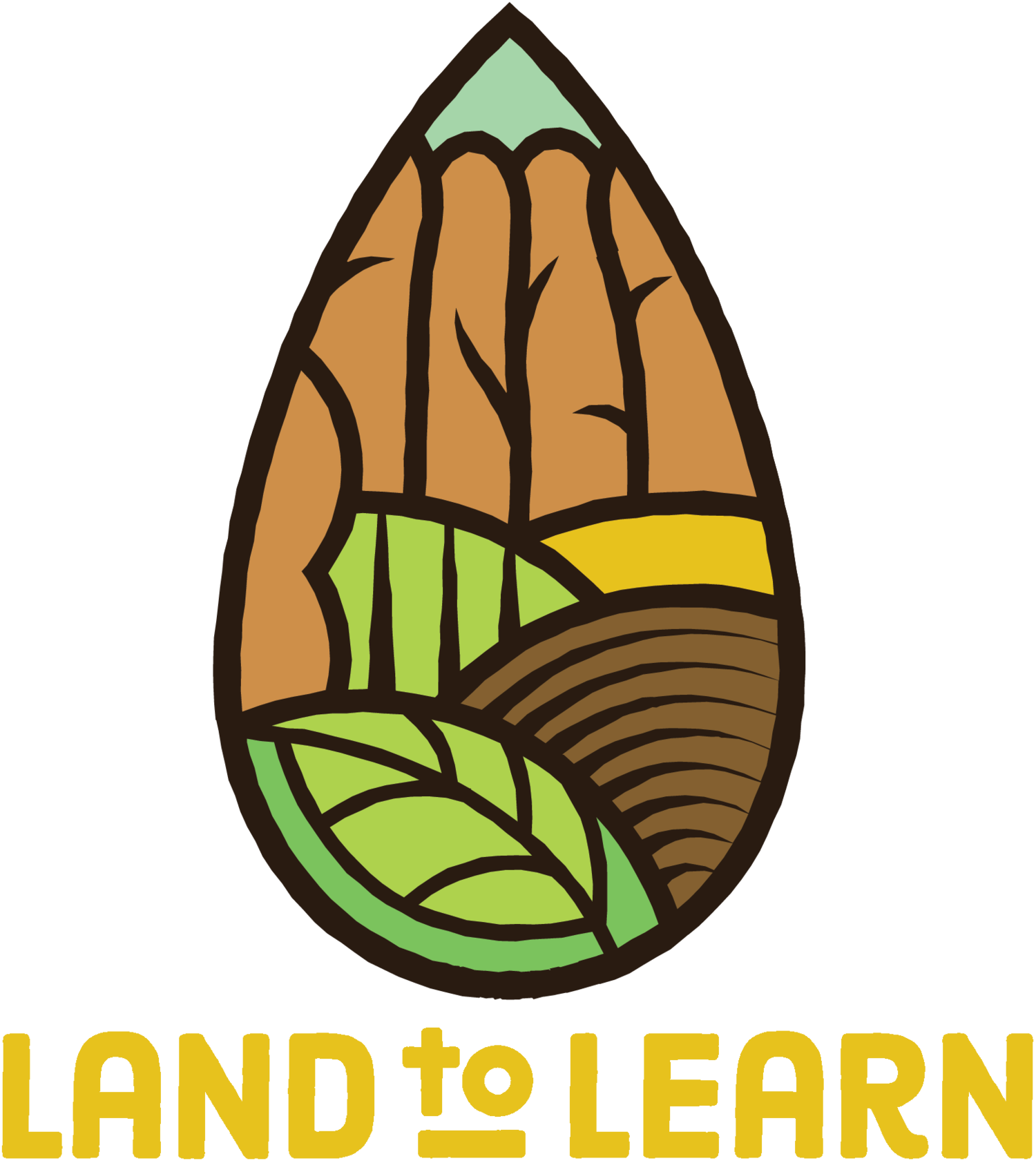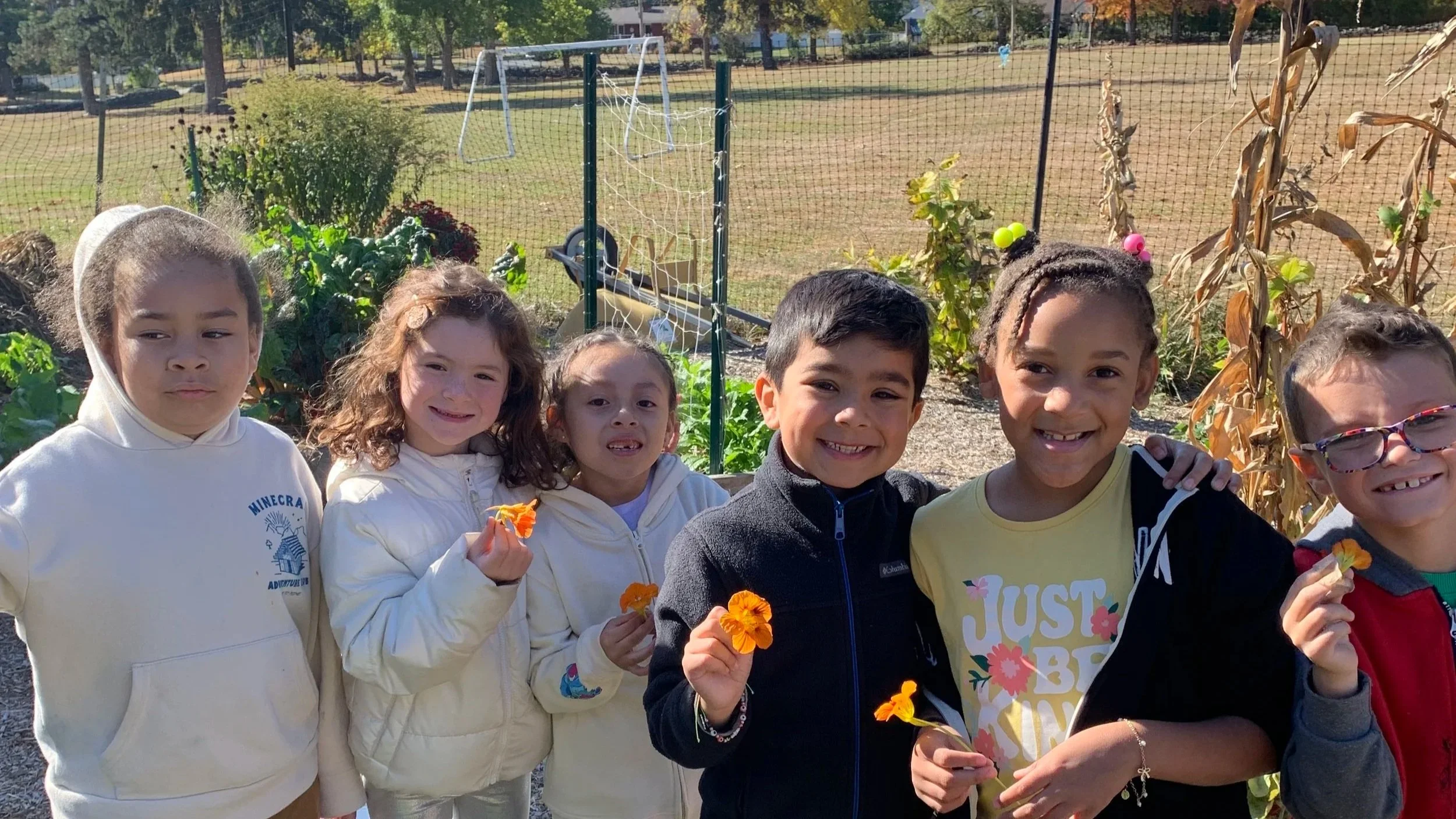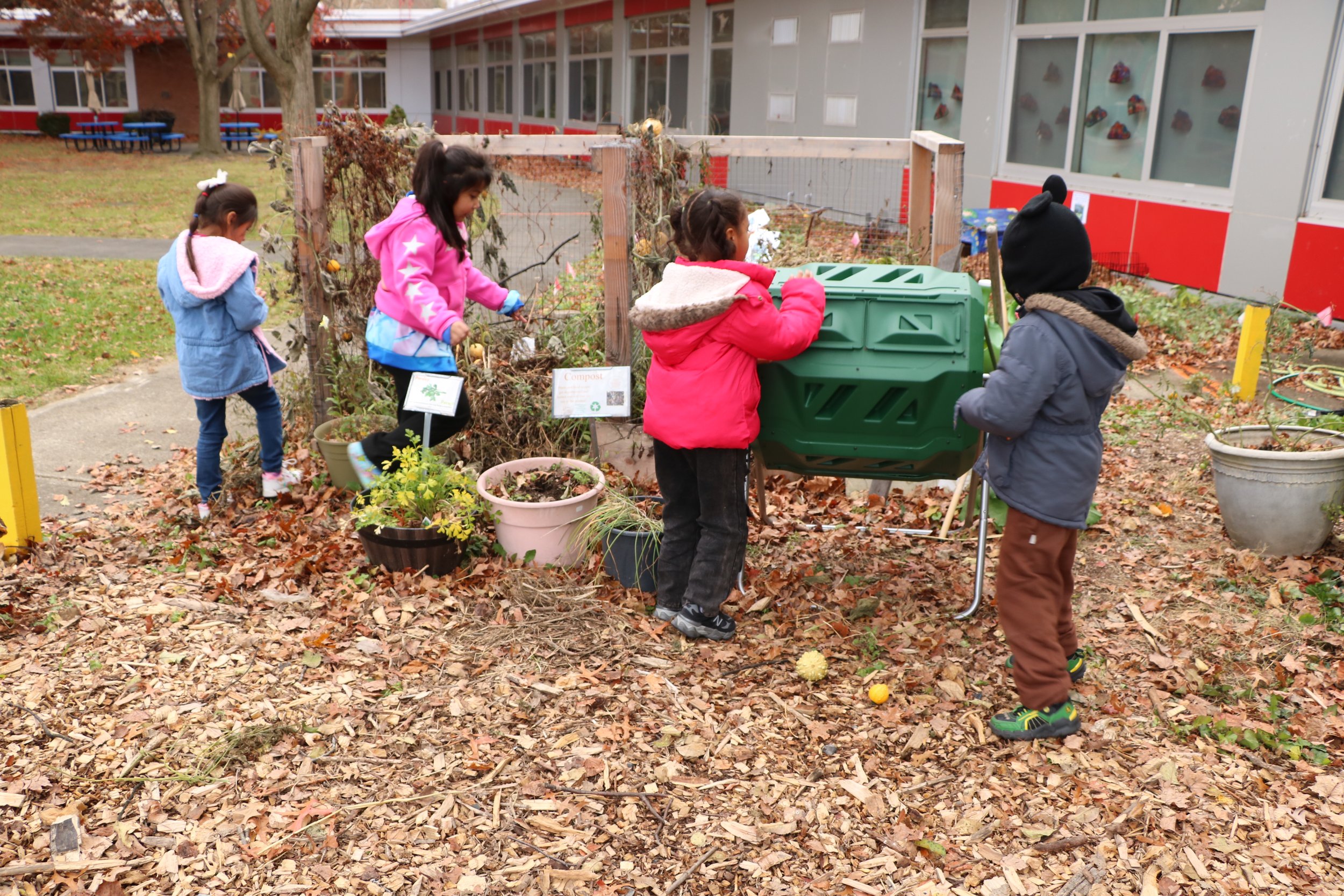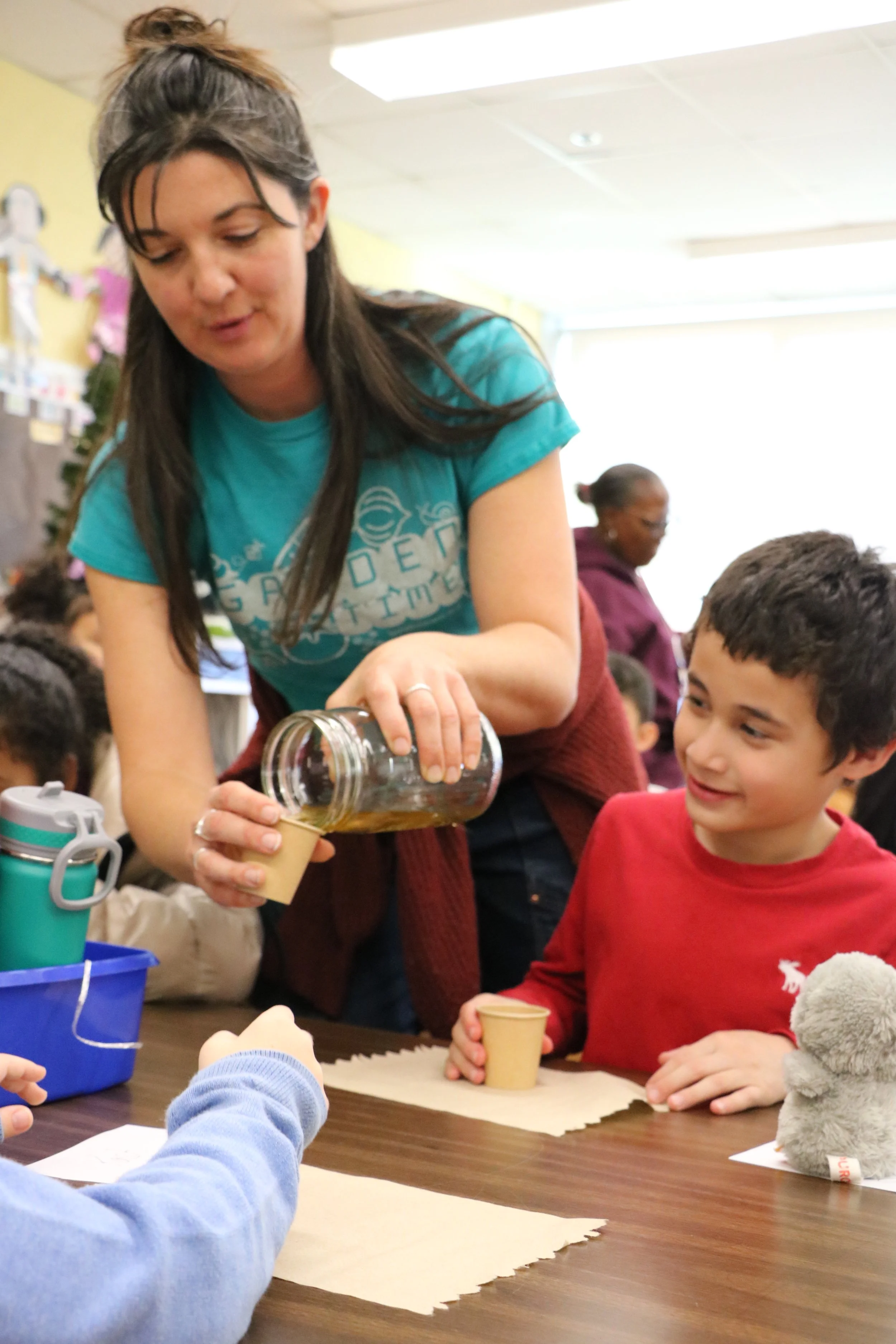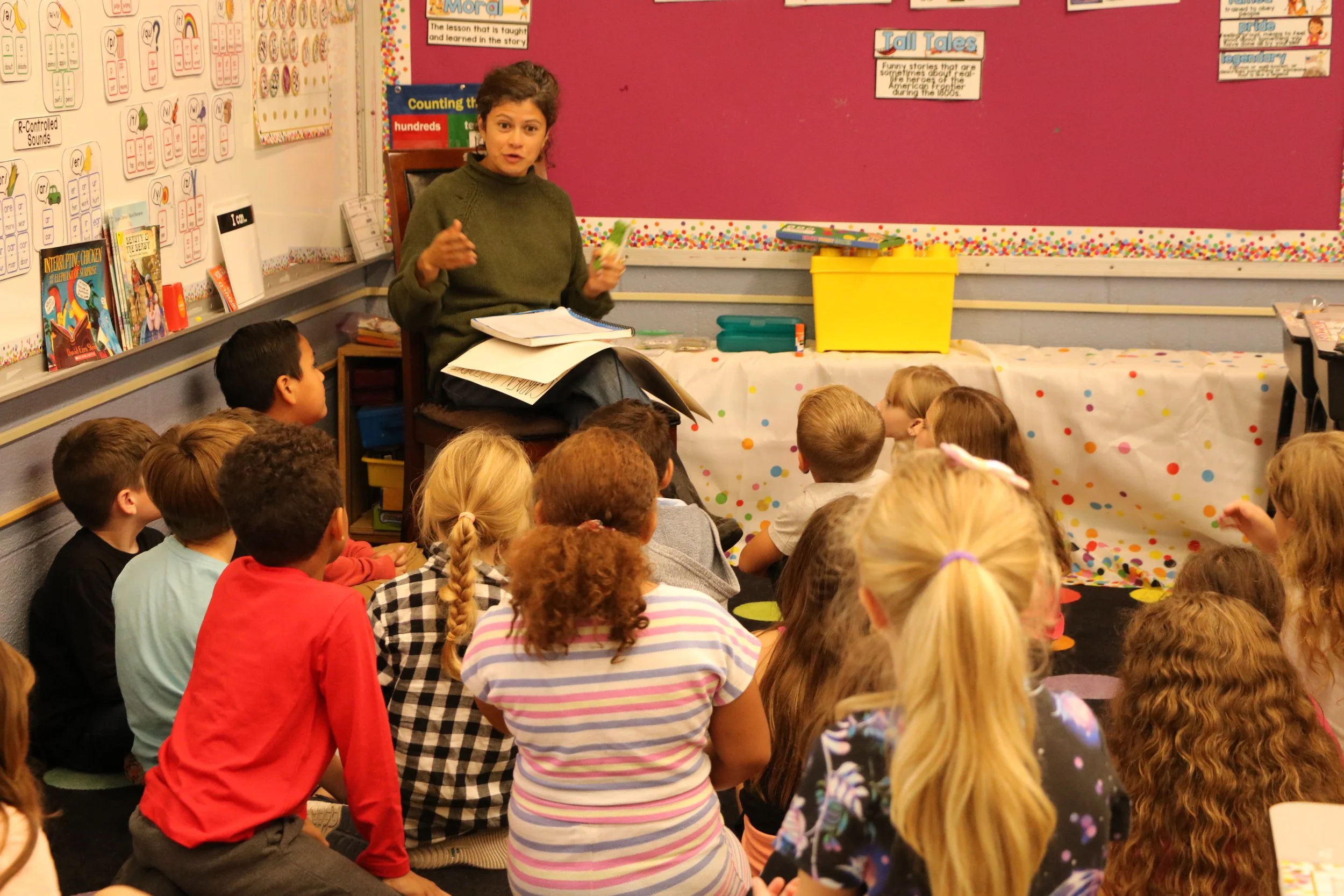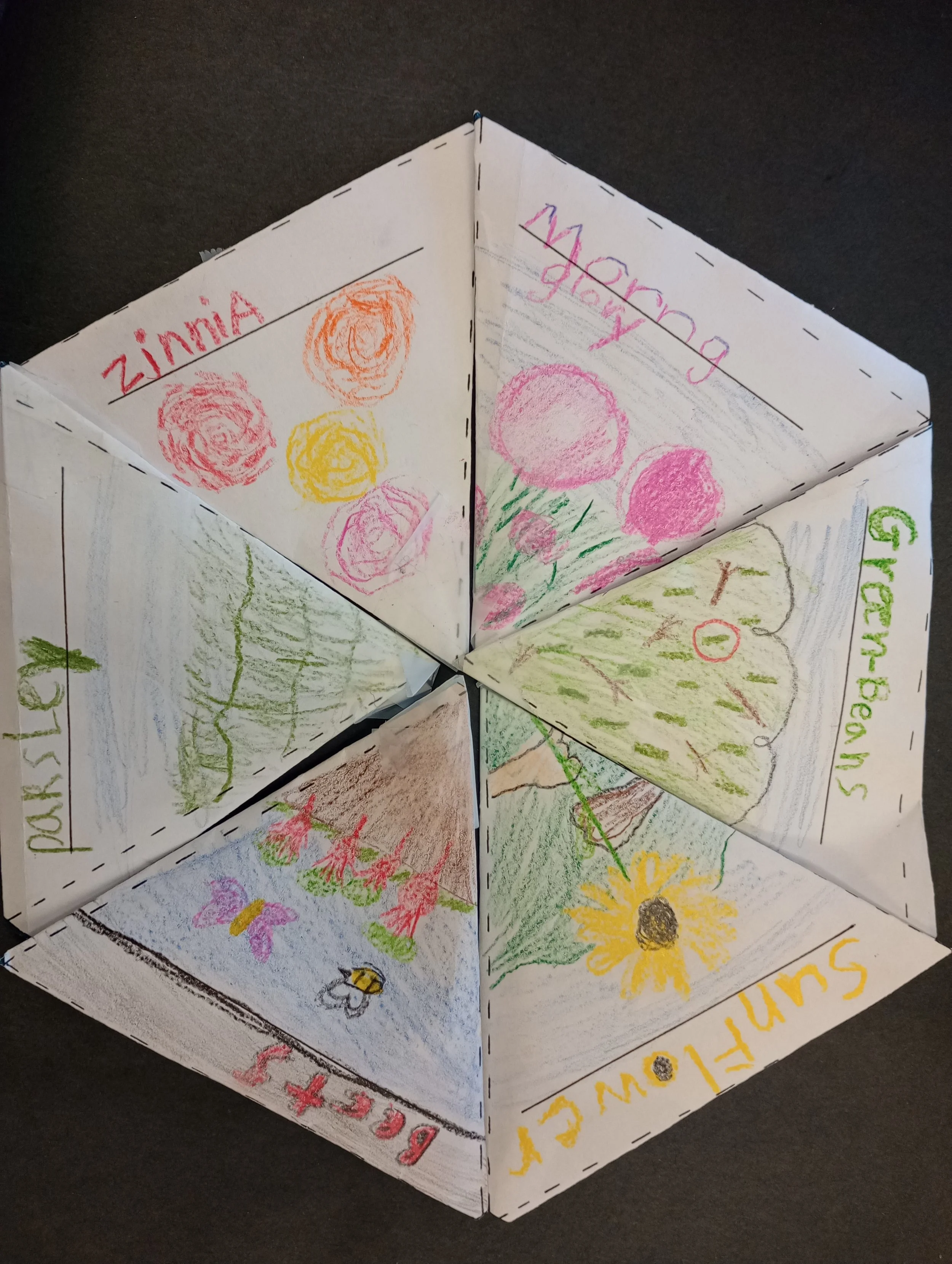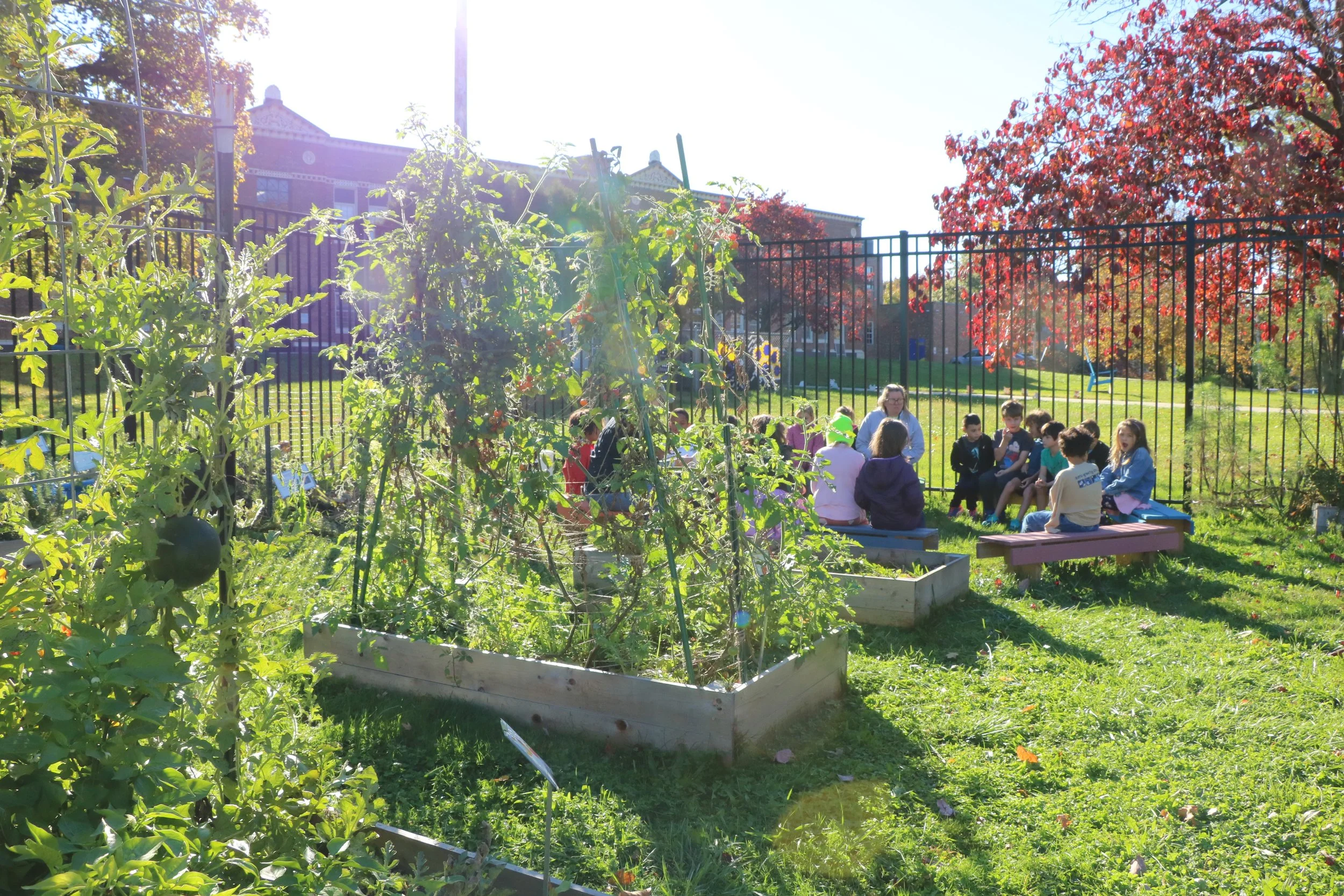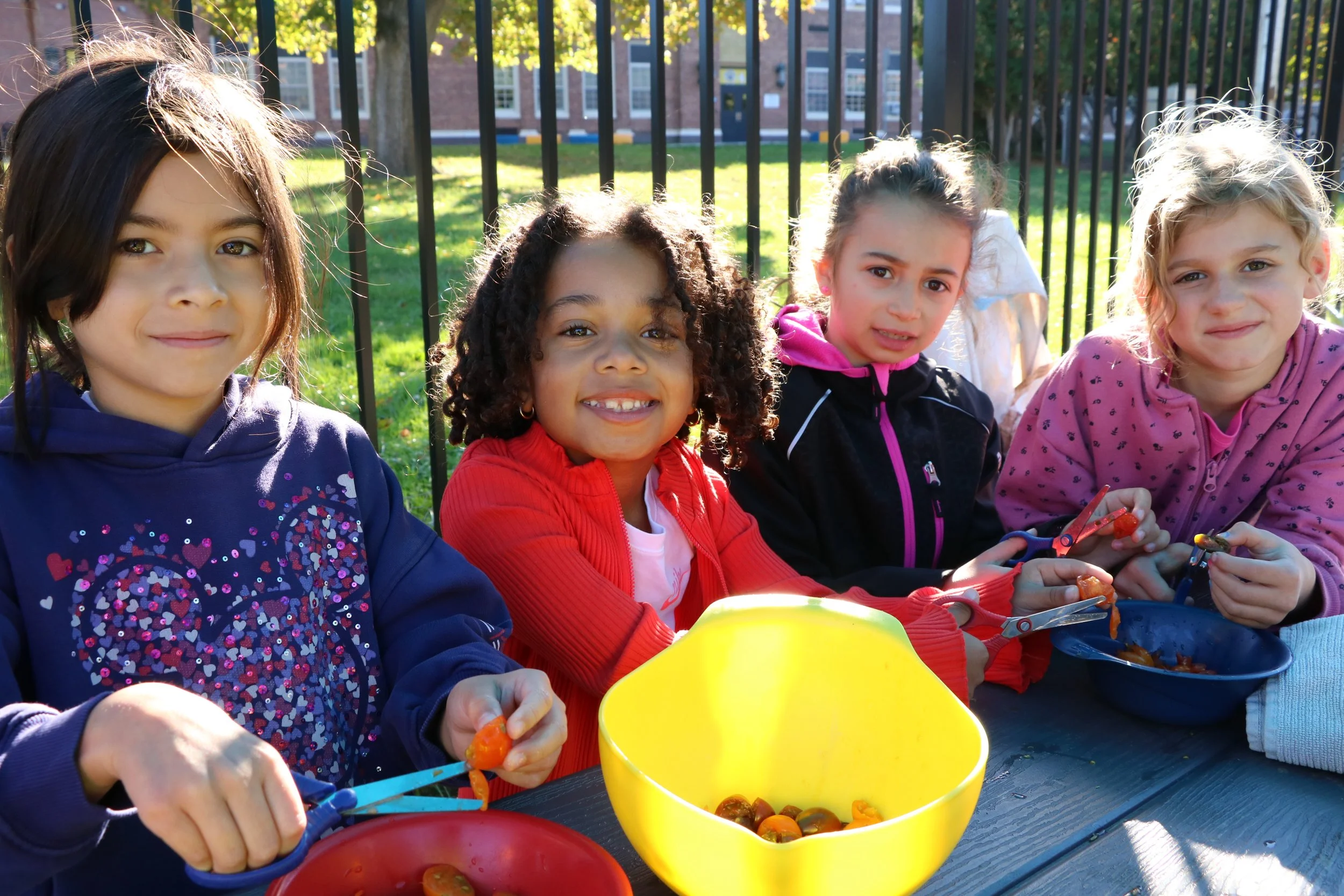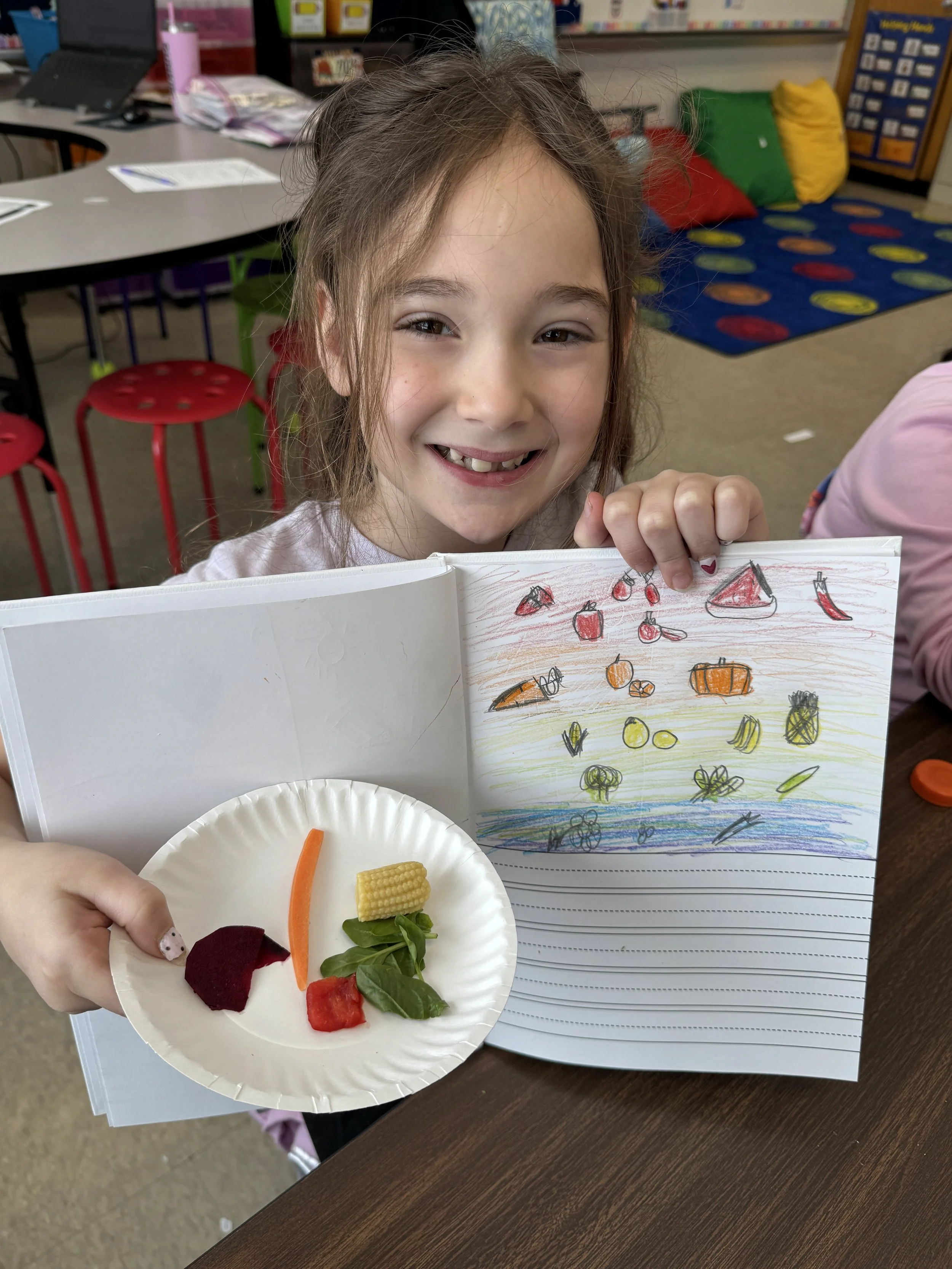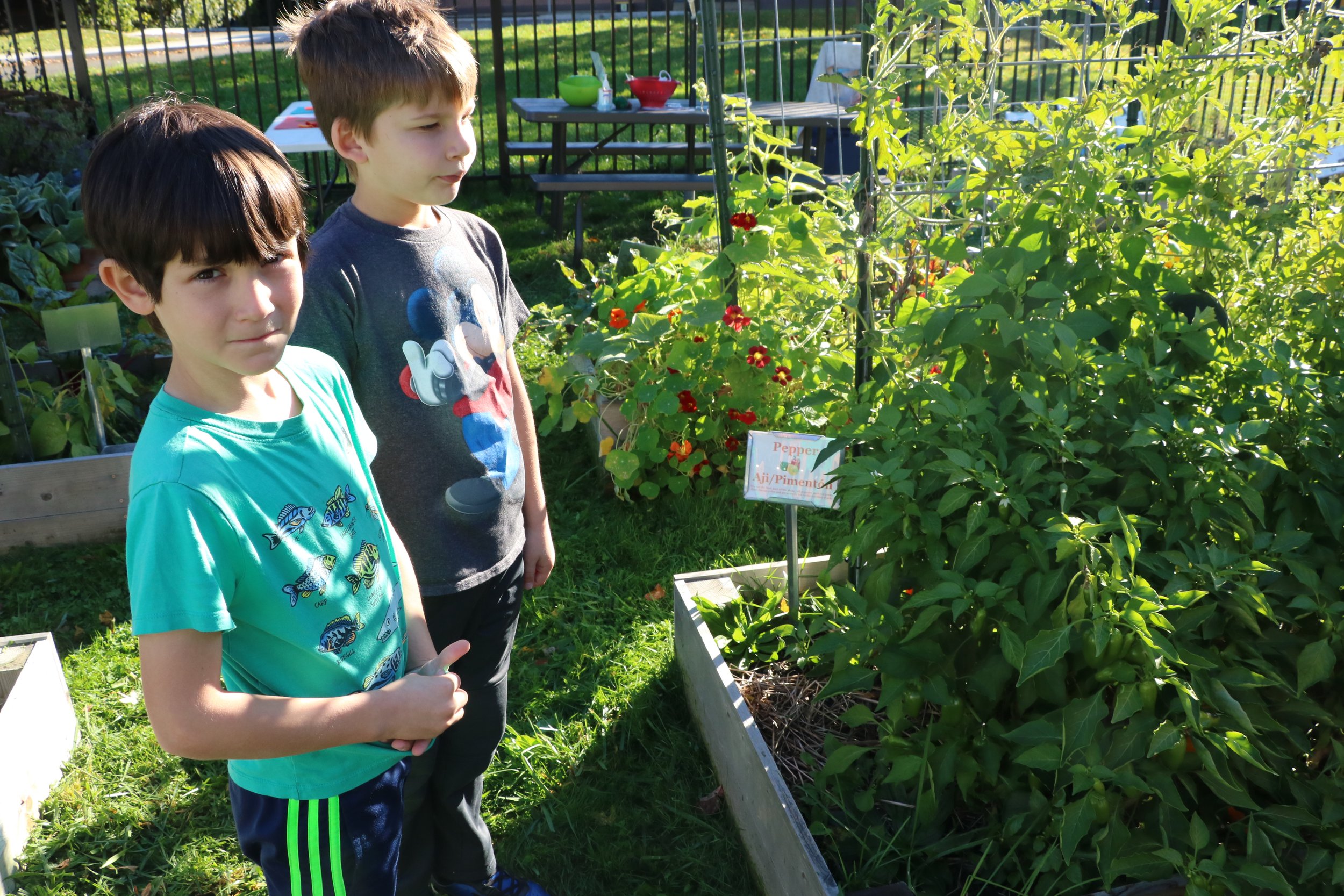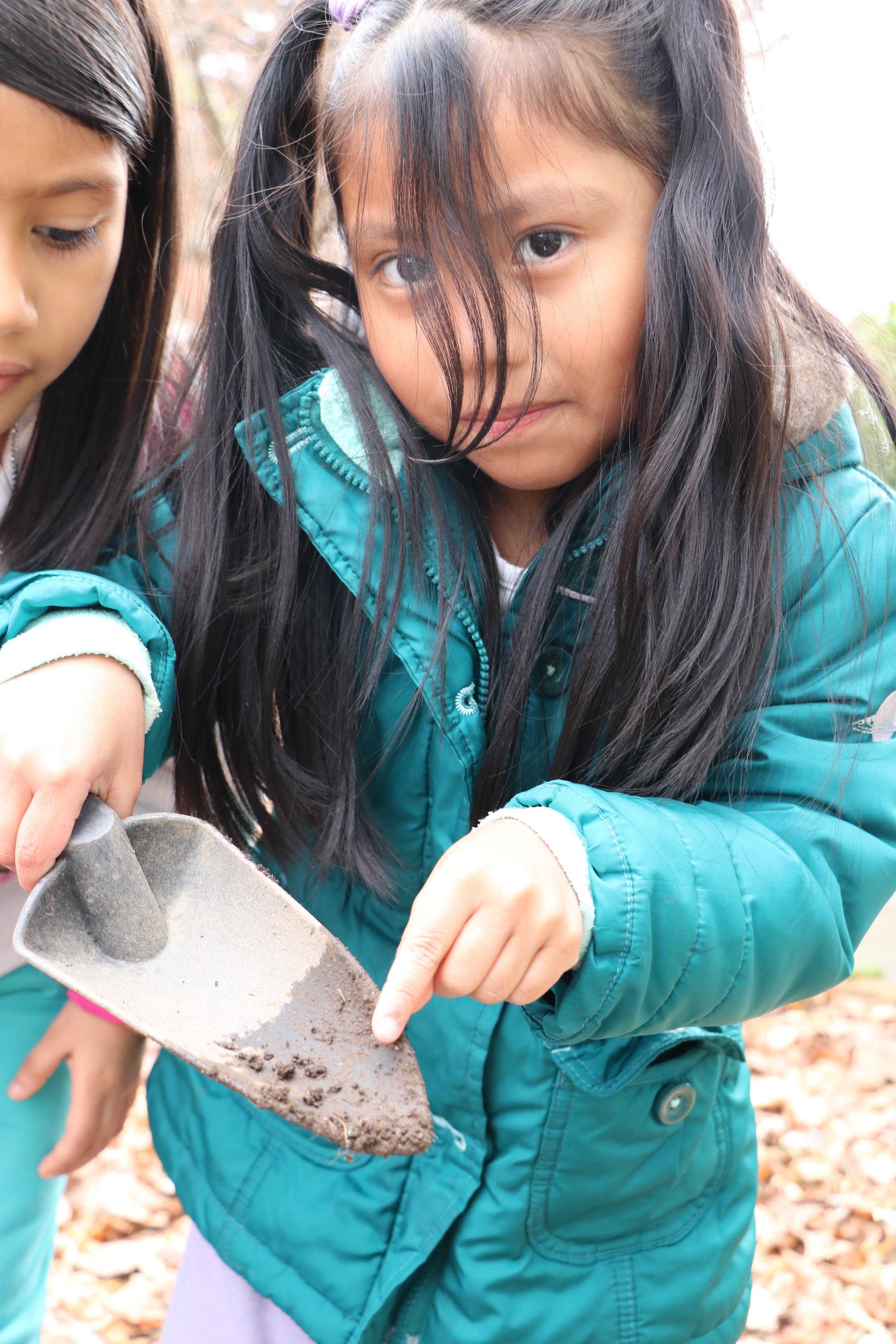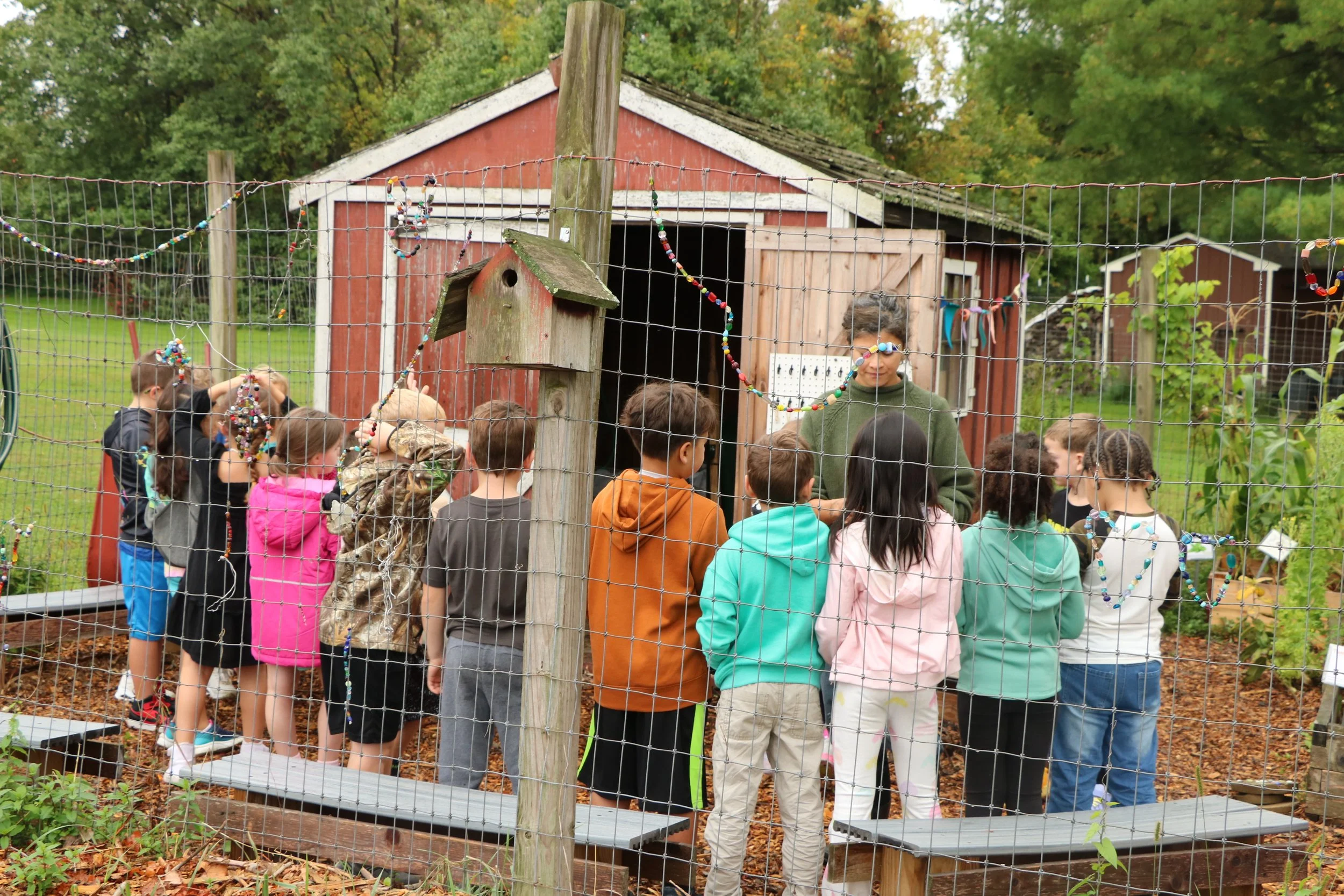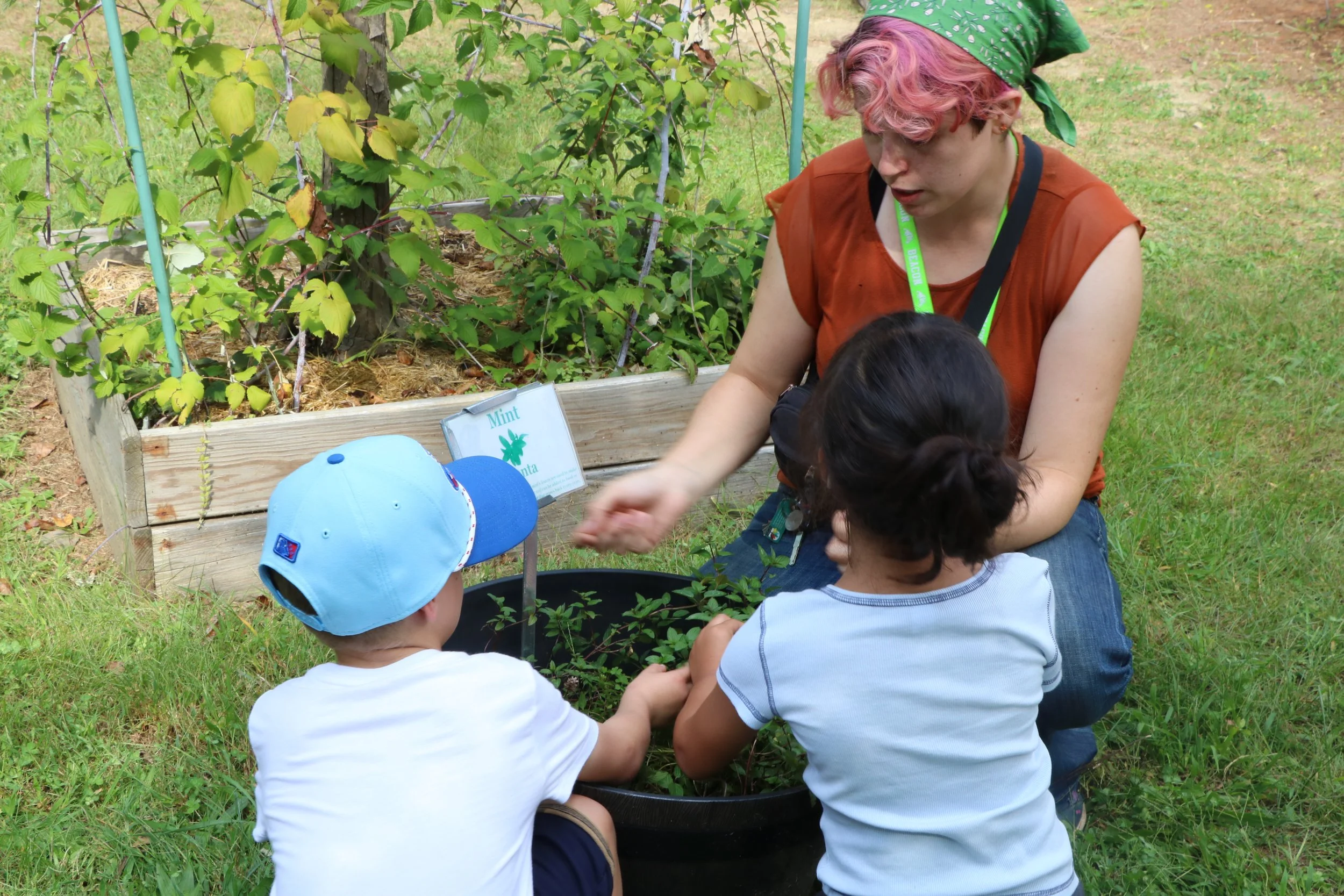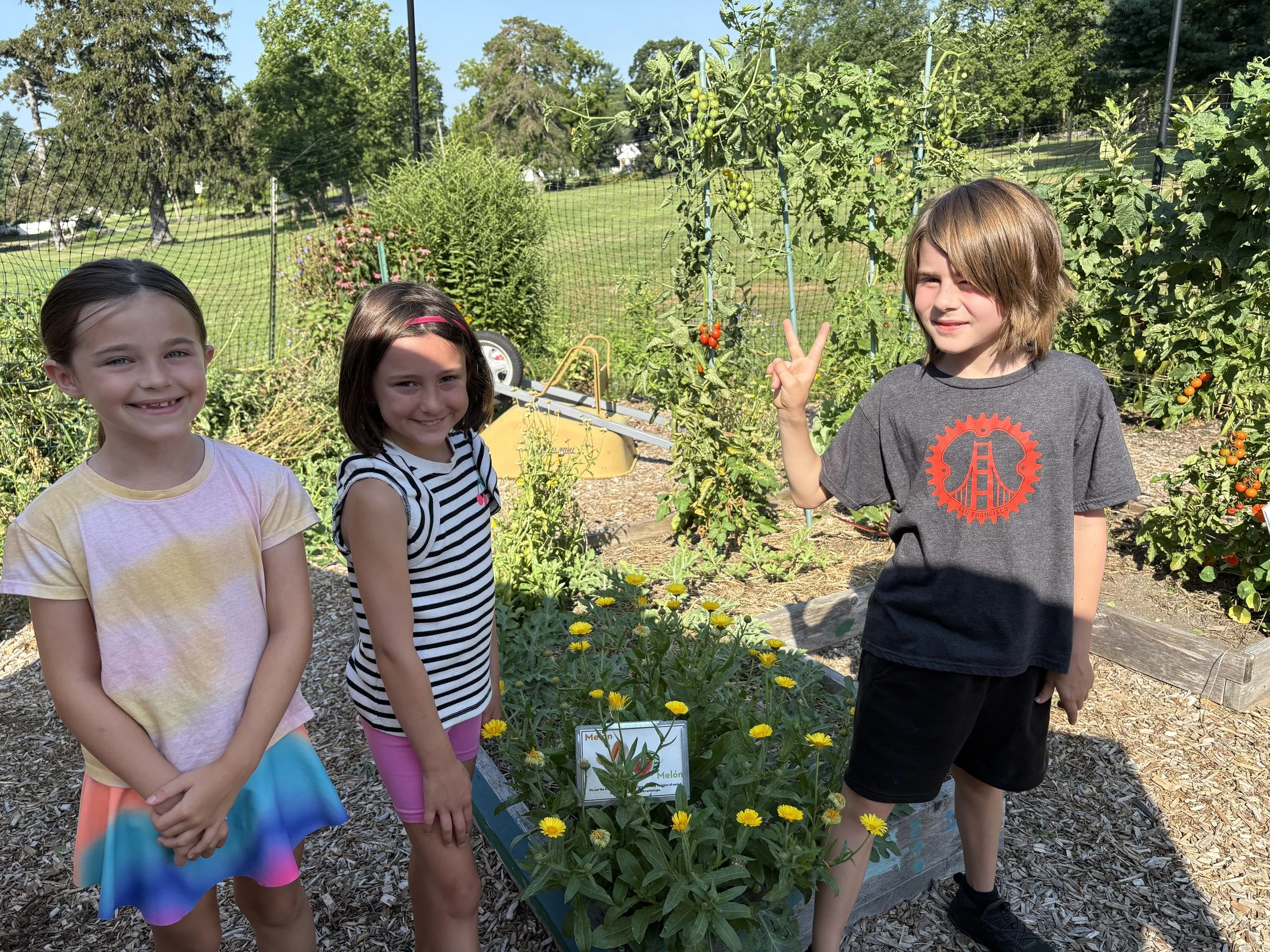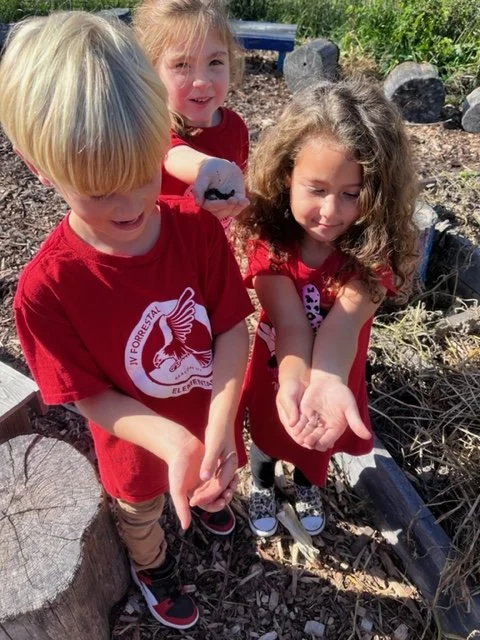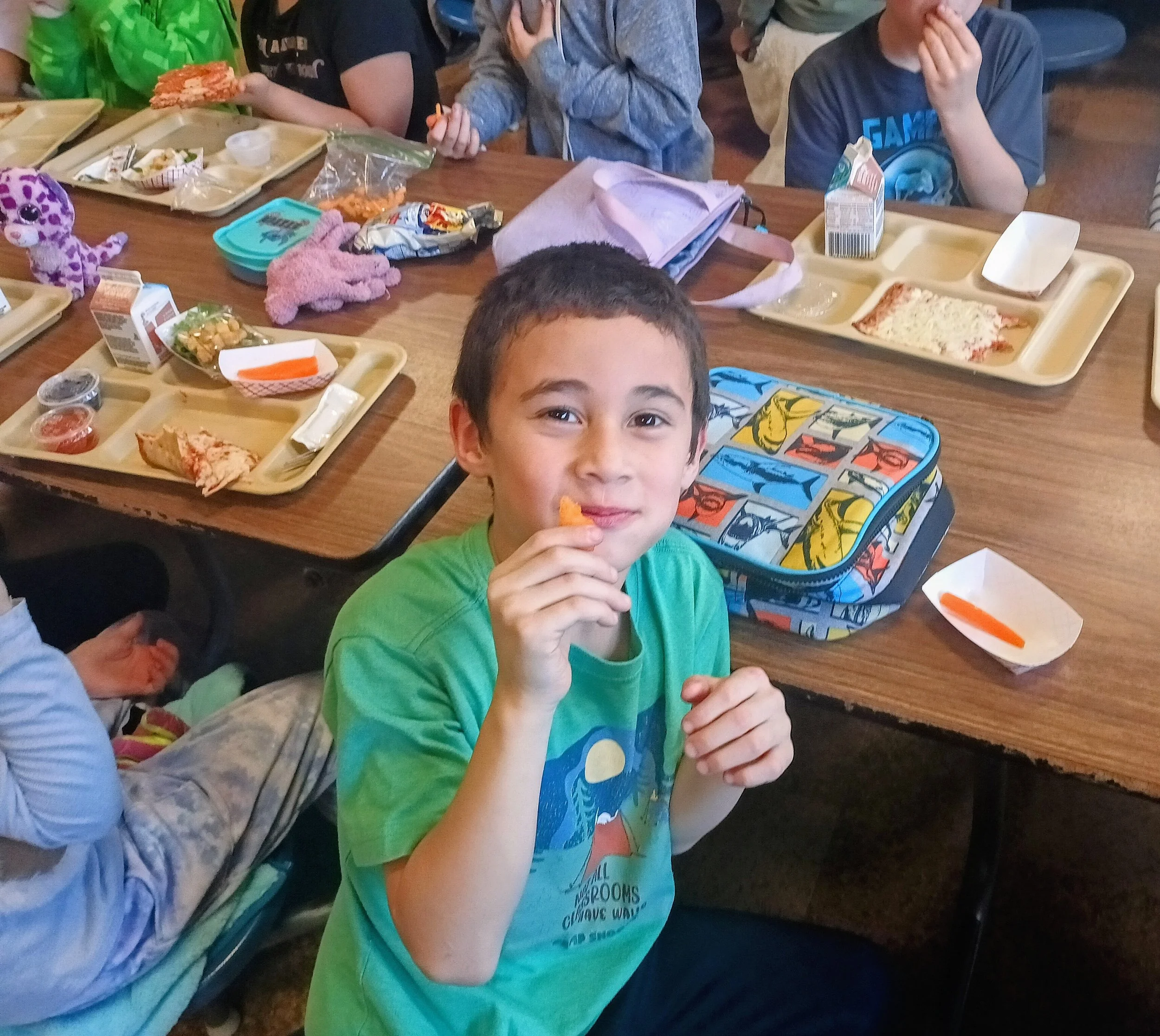SproutEd
Land to Learn’s in-school program brings garden-based education to 2,774 K-3 students (that’s 165 classes participating in monthly lessons!) across 11 public elementary schools for the 2025-2026 school year.
We build school food and pollinator gardens and teach lessons during the school day, year-round, that educate students in gardening, nutrition, cooking, plant science, ecology, and food systems. Our curriculum is experiential and hands-on, offering students a fun, engaging way to apply and develop their academic and social emotional skills. Our experienced garden educators also work with school food service departments to promote fresh vegetables in cafeterias, and collaborate with other school community partners to support wellness and environmental initiatives in schools.
“So THANKFUL for the Garden Time part of this school year. My daughter LOVED it and enjoyed learning about plants, vegetables, and fruits and how they are good for her.”
-Parent of SproutEd student
Watch kids learning together in gardens and classrooms with LtL educators!
“This is going from gardening to history - how many subjects are in this thing?!”
-Emmett, a 2nd grader, noting the cross-curricular connections in an LtL lesson
We have developed unique garden-based lessons, which are part of a scaffolded curriculum in which each year builds upon the last, from the start of Kindergarten through the completion of 3rd grade:
Kindergartners are Beginning Gardeners: Developing an Understanding of what a Garden is and Who Gardeners Are
Kindergarteners entering the school garden for the first time learn the foundational aspects of gardening from planting seeds to harvesting, within the theme of the four seasons. Students build their garden-based vocabulary by doing activities such as: creating a garden alphabet book, reading garden signs, playing games in which they practice using describing words, reading garden-based books, and labeling their drawings of garden plants and animals. Throughout the year, students are exposed to diverse representations of farmers and gardeners, in photos, books, and videos to show that people of all ages, races, ethnicities and genders are gardening, which now includes them!
1st Graders are Garden Scientists: Developing Environmental Literacy
1st graders draw on their basic knowledge of gardening to observe the growing space and think critically about the relationships between plants and animals in the garden habitat. Students learn about the ecology of garden habitats that include predator/prey dynamics, the mutually beneficial relationship between plants and their pollinators, as well as how decomposers build garden soil through the process of decomposition. Students also learn mapping and garden planning. As scientific gardeners, they focus both on investigating the garden habitat and learning to grow crops, in order to develop an understanding of how to create a space that supports wildlife while providing healthy food for humans. And of course, they partake in harvesting and eating from the garden.
2nd Graders are Gardening Chefs: Developing Food Literacy
After deepening their understanding of how food grows in a garden, 2nd graders explore how to turn that produce into nutritious, delicious meals to feed ourselves, our families, and our communities. Students learn basic cooking skills as they chop freshly harvested vegetables, measure ingredients, preserve their harvest through quick pickling, create their own recipes, and explore the range of different kinds of tastes. Classes collaborate to follow recipes and make culturally diverse snacks. Students explore cookbooks with recipes from around the world, and “meet” (via videos and books) a diversity of chefs, from famous kids to local professionals. They develop their “food literacy,” which includes an understanding of where food comes from and how it gets to our plates. This second grade curriculum supports a foundational understanding of nutrition with the core message that vegetables and fruits provide vitamins and nutrients that help our bodies and taste great too.
3rd Graders are Global Gardeners: Developing Global Perspectives
Building on their experience as Garden Chefs, students incorporate their knowledge of plants as food to expand their learning to a global perspective. Students learn about the geographic and cultural origins of the crops grown in the school garden in order to understand the historical significance of growing food. In 3rd grade students enhance their culinary skills by using more complex cooking tools and recipes to create delicious, nutritious, garden-based snacks. Students use practical skills to deepen their understanding of the prevalence of math in everyday life. They discover how society has shaped the environment to meet their needs for food and shelter, and how the sharing of crops internationally has influenced our food system. They also are introduced to the relationship between climate and food production.
Vegetable of the Month
Making fresh vegetables accessible, exciting, and delicious for our kids!
In our Veggie of the Month program, Land to Learn Educators integrate a featured seasonal vegetable into monthly lessons, during which students taste the vegetable and learn about it. We serve it fresh - sometimes picked right from the garden - and often classes prepare a snack together. Each month, we share with our communities fun facts, a video, and recipes featuring the vegetable.
In our partner schools in Kingston, students are served the Vegetable of the Month in their cafeterias, where Land to Learn Educators encourage kids to try it and cast their vote.
